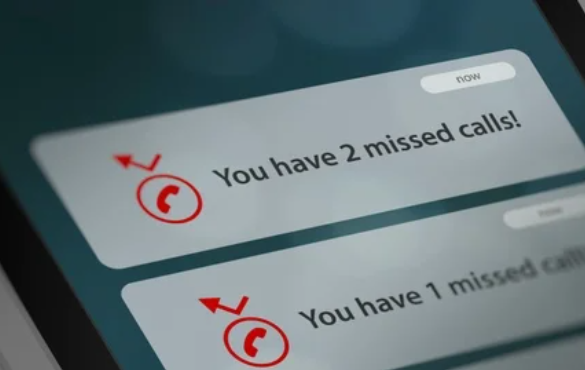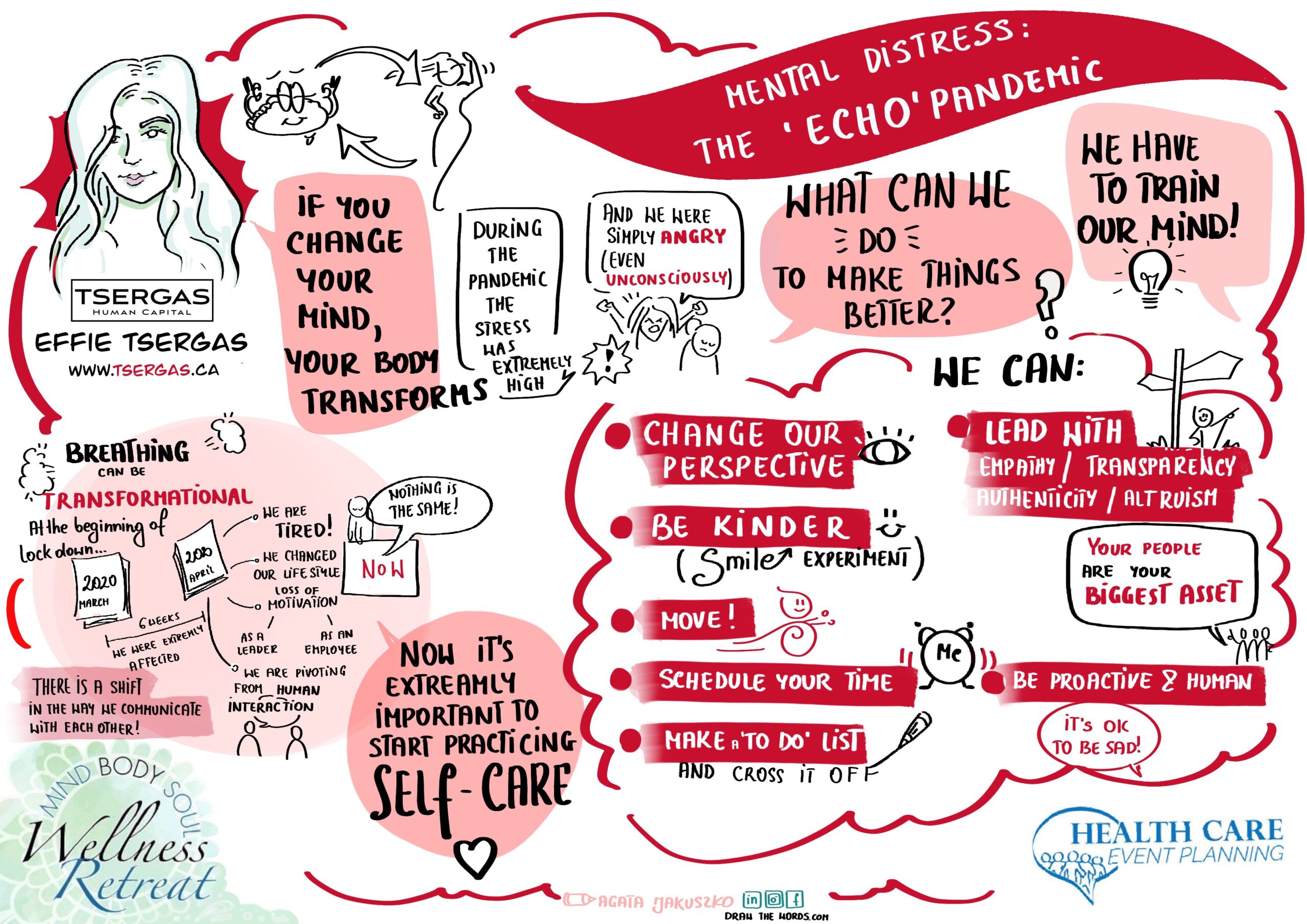
We all should have seen this coming. Sadly, some of us predicted it.
As we continue to try, as best we can, to accept our ‘fate’ (it’s called Covid-19; it’s a pandemic and by now, we all should be acclimated to the fact that this is nowhere near ‘over’), we cannot ignore the echo pandemics which have erupted as a result of the original global crisis we are experiencing.
Our growing global mental distress is a reflection; a reverberation—a spreading diseased tentacle—of the original crisis (Covid-19) which, unless carefully considered and dealt with, will continue to spread, and cause far greater harm: in workplaces and in our personal relationships. This echo pandemic has affected humanity.
Consider other diseased, ever-spreading, ever-increasing echo pandemics which we are struggling to understand and control:
- Economic crisis: Poverty, Homelessness, Unemployment
- Lawlessness: Thefts, Violence, Murders, CHAOS
- Racism: Hate Crimes
- Political Unrest
- Family Law Issues: Divorce, Domestic Violence
Mental Distress is a fast-growing problem. In April of this year, an Angus Reid report (published approximately one month later) found one-half, i.e., 50%, of all people surveyed said their mental health “has worsened over the past month and a half”. That was in April. Here we now are in mid-November—7 months later.
Last week, the premier of Ontario, Doug Ford, was quoted as saying, “We are staring down the barrel of another lockdown” as he moves most of the GTA into a red zone.
What are we doing to help ourselves and others who are dealing with mental distress, and other more serious mental health issues and the problems associated with those issues?

How has Covid-19 affected our workplaces?
It has dramatically changed the way we interact with one another and the way we socialize with our peers. It has changed the way we interact with our managers and our employees; the way we strategize and the way we deliver our work product.
The ‘now’ workplace is no longer about daily physical, in-person human interaction, ‘good morning’ greetings, shared conversations, and water cooler moments in the kitchen with colleagues. Instead, by now, we should all be experts at conducting our ‘virtual meetings’ and arranging our ‘virtual social dates.’ Today, in this moment, almost all our interactions occur via emails and video/telephone calls; and remote work is here to stay. (Perhaps a combination of remote work and one or two days in the office—but most companies have recognized that remote work is here to stay!)
The loss of physical human contact and daily human interaction is depressing; we feel isolated, we feel ‘different’; we feel unsettled. We feel unprepared for what is to come, uncertain about our future. We are afraid of the unknown and in some cases, we are immobilized by it.
This, in turn, leads to anxiety, depression, and an overall feeling of ‘unwellness’ and stress. We are exhausted; we are fatigued:
Isolation fatigue, wearing-a-mask-everywhere-we-go fatigue, washing our hands fatigue. We are all over it. An interview given on Canada’s CBC network last week by a Senior Angus Reid Executive who stated that “people are tired of hearing that we are all in this together”, spoke to my heart. She is correct. We know we are all in this together; we do not need daily reminders and standard messaging. Instead, we want to know: what can we do to make things better for ourselves?
What are the solutions?
With a lack of clarity or cohesion between local, provincial and federal governments, and no national strategy to cope with imminent lockdowns in hot point cities like Toronto and Ottawa in Ontario, for example (and in other cities in other provinces across the country), we have to look at other resources and come up with viable, practical solutions (as leaders, as employees, and as human beings).
The rate at which mental distress of employees is rising is, frankly, alarming.
All global experts agree that there are insufficient resources to assist with this growing crisis; and as we try to come to terms with what has become our “new now”, employers and employees need to act quickly through:
- Planning and Preparedness
- Authentic Communication
- Flexibility and Understanding
- Compassion and Empathy
The WHO’s Global Plan of Action on Worker’s Health (2008-2017) and Mental Health Action Plan (2013-2030) outline relevant principles, objectives, and implementation strategies to promote good mental health in the workplace. These include: addressing social determinants of mental health, such as living standards and working conditions; activities for prevention and promotion of health and mental health, including activities to reduce stigmatization and discrimination; and increasing access to evidence-based care through health service development, including access to occupational health services.
WHO further states that:
“Building on this, a guide from the World Economic Forum highlights steps organizations can take to create a healthy workplace, including:
- Awareness of the workplace environment and how it can be adapted to promote better mental health for different employees.
- Learning from the motivations of organizational leaders and employees who have taken action.
- Not reinventing wheels by being aware of what other companies who have taken action have done.
- Understanding the opportunities and needs of individual employees, in helping to develop better policies for workplace mental health.
- Awareness of sources of support and where people can find help.
Interventions and good practices that protect and promote mental health in the workplace include:
- implementation and enforcement of health and safety policies and practices, including identification of distress, harmful use of psychoactive substances and illness and providing resources to manage them;
- informing staff that support is available;
- involving employees in decision-making, conveying a feeling of control and participation; organizational practices that support a healthy work-life balance;
- programmes for career development of employees; and
- recognizing and rewarding the contribution of employees.”

Mental Distress in the Workforce: HR Perspective
A growing number of concerns among our colleagues who are HR professionals and employment lawyers are some of the following workplace behaviors which have been taking place and are being reported and discussed:
- Increased absenteeism
- Stress Leave or Extended Medical or Leave of Absence Requests
- Lack of motivation: loss of productivity
- Sloppy work product: lack of attention to detail; lack of focus (across the board—not just employees – but their managers, executives, senior leaders)
- Lack of team cohesion and an increase in departmental or team siloes
What can we do? Here are some important tips:
- Planning and Preparedness
- Leaders and Managers: Re-think your strategy and engage your people. Work closely with your HR Department or HR professional services providers to ensure you understand the importance of employee mental health programs and general employee relations initiatives geared towards your people’s mental well-being. Develop these programs or seek help from those who have already developed these programs; implement weekly wellness sessions, monthly diversity and inclusion sessions, start an employee committee and / or ask your employees to help you get these initiatives off the ground!
- Authentic Communication
- Your people want to know that you are human, vulnerable, and authentic. Lead with that. If you don’t have an answer to a problem, express and explain this to your employees. Communicate, Communicate, Communicate—but only do so in an authentic and transparent way. Your people know when they are getting a standard response. This is not the time for black or white tones. We are living shades of grey; and we must adapt accordingly. Authenticity, vulnerability, and honest and open communication are the keys.
- Flexibility and Understanding
- Be prepared to be flexible. Be understanding. Be open to new ideas. It’s a new world, after all. Learn to pivot. Think ‘Servant Leadership’ model. Here are a few steps you can take to help you develop into a better (servant) leader.
- Encourage diversity of thought
- Create a culture of trust
- Have an unselfish mindset
- Foster leadership in others
- Ask your people what they need from you and how you can support them
- Be prepared to be flexible. Be understanding. Be open to new ideas. It’s a new world, after all. Learn to pivot. Think ‘Servant Leadership’ model. Here are a few steps you can take to help you develop into a better (servant) leader.
- Compassion and Empathy
- Be open to raw and honest discussions and listen to others’ opinions without judgment or arrogance
- Gain different perspectives
- Be empathetic: Your people are human; as are you.
Employees: It’s Okay to be Human
- Be proactive—not reactive: Speak to your manager and/or reach out to your Human Resources department. Ask for help; ask for flexibility. Have an honest confidential conversation about your circumstances.
- Remember that your boss is also human: we all have a responsibility to lead with empathy – now more than ever. Understanding goes both ways. If you are experiencing mental distress and the whole world is experiencing mental distress, then it is likely that your boss is experiencing mental distress!
- If you sit on an employee committee at work (like a social committee, a diversity and inclusion committee, or a staff-management liaison committee, for example), bring forward your ideas and initiatives. What are you doing to help yourself and your colleagues?

Mental Distress Symptoms
So, what does mental distress look like?
“Mental distress (or psychological distress) is a term used, by some mental health practitioners and users of mental health services, to describe a range of symptoms and experiences of a person’s internal life that are commonly held to be troubling, confusing or out of the ordinary. Mental distress can potentially lead to a change of behavior, affect a person’s emotions in a negative way, and affect their relationships with the people around them.”
Whether you are a business owner, a CEO, an employee, or a Manager, one thing is certain: You are all—we are all—Human. So, ask yourself if you are experiencing or have recently experienced any of these symptoms (which all experts agree are some of the most common among people who suffer from mild to moderate mental or psychological distress).
Here’s a simple checklist:
- Not sleeping or sleeping too much
- Loss of appetite or binge eating
- Chronic Fatigue and Exhaustion
- General Fear and Anxiety (perhaps even panic attacks)
- Agoraphobia: extreme or irrational fear of entering open or crowded places, of leaving one’s own home, or of being in places from which escape is difficult (generally brought on by general anxiety disorder)
- Isolating yourself from family or friends (even, virtually or on the phone)
- Extreme mood swings
- Anger management issues
- Calling in sick to work or not showing up for days
- Obsessive Compulsive behaviors (pacing, over-checking your phones, excessive washing of your hands, counter-tops, etc.)
How did you do?
Although I studied psychology and sociology many moons ago, I am no psychologist or mental health professional. However, I do think it is safe to say that if you are experiencing one or more of the above symptoms, you are suffering some form of mental or emotional/psychological stress.

Infographic from Effie’s talk on “Mental Distress: The Echo Pandemic,” presented at the Mind, Body & Soul Wellness Retreat.
What can we do to help ourselves?
- Self Care is #1
- Take care of you first – if you don’t, you are no good to anyone else.
- Move: Emotions improve with movement. Force yourself to go for a walk, stretch your legs, do a 10-or 15-minute exercise routine of your choice; but move!
- Schedule time in your calendar for yourself and do not feel guilty about it!
- Practice concentrated, focused deep breathing for 5 to 10 minutes a day. It helps and it is not easy to do – so schedule it and focus on it. Start off with 5 minutes.
- Make a daily To Do list; even if you don’t get through it; even if it stares you in the face until you do start knocking items off that list! (It “feels good” when you do!)
- Be kinder to yourself; so that you can be kinder to others who need it more than you do.
Speaking of leading with vulnerability, it has taken me a while to finish writing this blog post. The reason? I was not practicing what I was preaching, and my own exhaustion levels caused by a lack of sleep, some mild agoraphobia, and my workaholism had me checking off more than 5 items on my little checklist (above). Yes, I could no longer ignore the signs. I, too, was suffering mental distress!
Thankfully, and after a good long cry and a harsh reality check, I was able to get back on track. Some of the things I have been doing over the past few months which have greatly helped me re-connect to my humanity are:
- I start my day with gratitude (I remind myself that I have a job, a roof over my head, my good health and my core people)
- I smile at random strangers on the street when I am going out to run my errands
- I donate to charity drives at the grocery store, liquor store, pharmacy
- I feed homeless people and give them a few bucks (daily). More importantly, perhaps: I speak to them; I ask them how they are doing and if they are managing to stay safe.
- I ask people for help when I need it; even if it is uncomfortable for me to do so
As we continue to live through this new ‘now’ and attempt to deal with our global medical crisis, please remember to check in with you, have authentic conversations with yourself; ask yourself: How am I really doing? Am I okay? Above all, please remember: It’s okay to be human. It’s okay to ask for help—to reach out, to cry, to have moments of hopelessness, despair, and fear.
If you continue to struggle or if your symptoms worsen, please seek professional help. Speak to your manager, your sibling, your best friend, your spouse, your HR professional, your parents, your doctor; but please, just speak. Ask for help. You are not alone.
If we do not attune ourselves to this echo pandemic (mental distress) and really try to understand how our workforce has been affected, isolation fatigue, a lack of motivation, increasing stress levels – will lead to a lack of productivity and a lack of affective commitment in our workplaces and businesses. Ultimately, this will cripple whatever is left of our businesses. There will be nothing left to ‘recover’ from.
Effie Tsergas
Founding Principal, TSERGAS Human Capital (All Things People™)
“My dark days made me strong. Or maybe I already was strong, and they made me prove it.”
― Emery Lord, ‘When We Collided’

Effie Tsergas
Founding Principal, Managing HR Director
Effie has been a champion of positive organizational behavior for over thirty years. She founded TSERGAS Human Capital over 10 years ago. Aside from her “effervescent” personality and unwavering commitment to HR best practices, Effie is well-known for her work with some of the top legal firms in Canada. She assists clients across various industries with everything from targeted, direct recruitment, strategic human resources planning; and change management initiatives. With a wealth of experience in human resources, workplace investigations, law, public relations, and marketing communications, Effie is a seasoned strategist with expertise you can bank on.